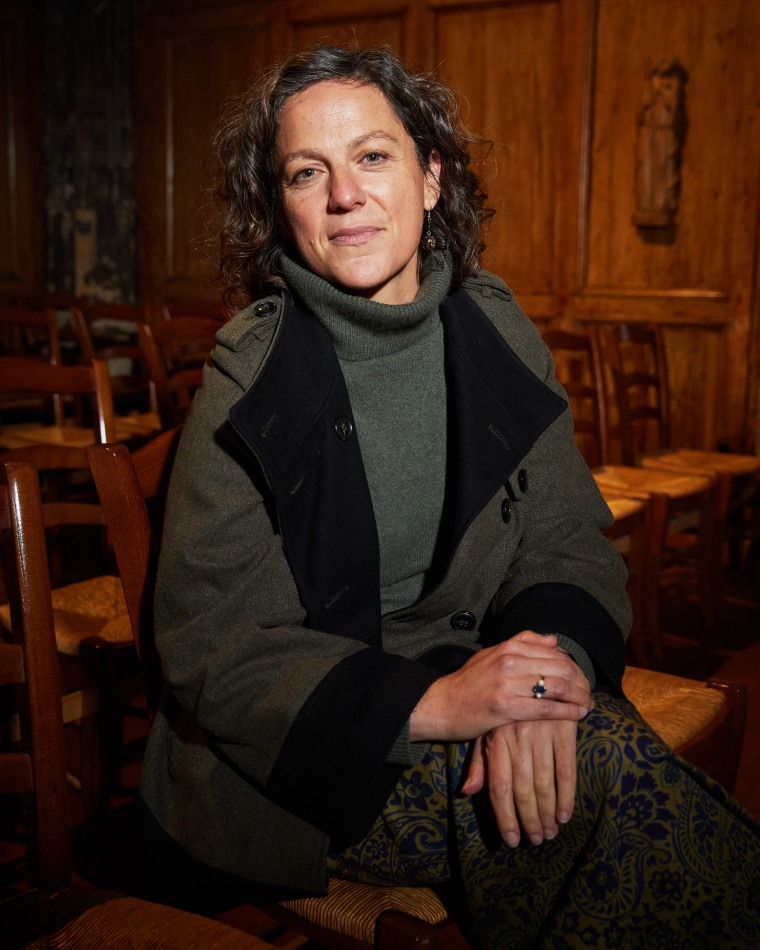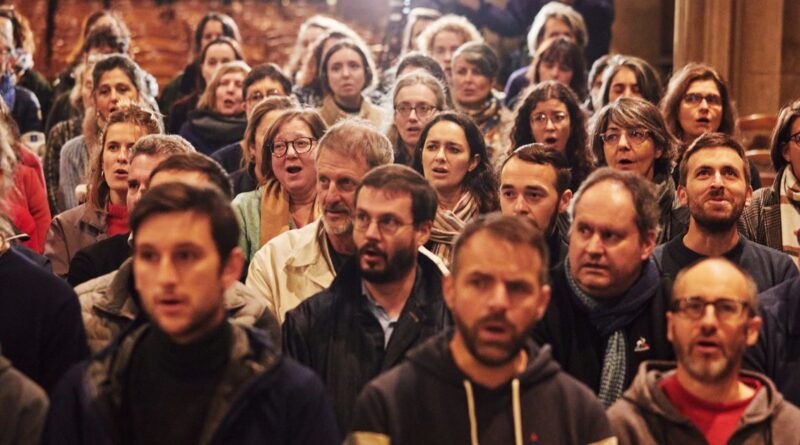Choir formed from the ashes of the Notre-Dame cathedral helps mark reopening
PARIS — Most have on jeans, some wear rough work boots, and one sings with a white construction helmet tucked under his arm. Gathered in the church hall before the altar, their song begins low and soft, surges and then sweeps through the Gothic-style church and up to its soaring stone ceiling.
The 80-strong choir has come together to do more than sing, though — the crew of architects, stonemasons, archaeologists, art historians, art conservators and others have helped rebuild Paris’ Notre-Dame cathedral after a fire ripped through the iconic French Gothic masterpiece nearly five years ago.
With hundreds of people working to rebuild a structure so intimately tied to French art, history and culture, it felt natural to start a choir, said Stephanie Duchêne, a conservation scientist and chemical engineer who helped form the Notre-Dame Compagnons Choir, or Notre Dame Companions, nearly two years ago.
Much like the building and rebuilding of a cathedral, a small army of individuals needs to work in unison to create extraordinary music.
“Everyone has to do his part to make the music sound good,” said Duchêne, the chief archaeologist and conservation scientist for the Laboratory of Research for Historical Monuments.

Five years after the blaze that destroyed much of the cathedral’s roof and brought down its iconic spire, long one of the city skyline’s most recognizable sights, the Notre-Dame Compagnons Choir is preparing to perform in the building they helped save. It will be part of a weekslong celebration marking the long-awaited reopening.On Dec. 11, the choir will perform a rendition of French composer Gabriel Fauré’s “Cantique de Jean Racine,” or “Chant by Jean Racine.”
Like many others, Duchêne remembers exactly where she was when she heard about the blaze.
“My brother sent me a picture of the fire,” Duchêne, 46, told NBC News ahead of rehearsal in the Saint-Séverin Church, which is known for its musical performances and is the oldest church in Paris’ Left Bank. Just weeks before, she and her husband had taken their children to visit the cathedral — and now it was at risk of being reduced to rubble and ashes, she remembers.
“Everyone was very sad and very anxious about the potential collapse of the cathedral overnight,” she said. “We were very relieved in the morning when we saw that it was — that she was — still standing.”
Agnes Poirier, a French author who published the book ”Notre-Dame: The Soul of France,” in the aftermath of the fire, echoes the pervasive feeling that the cathedral is much more than simply a building.





